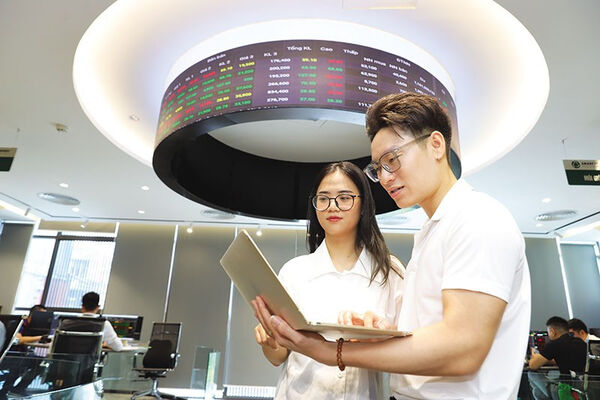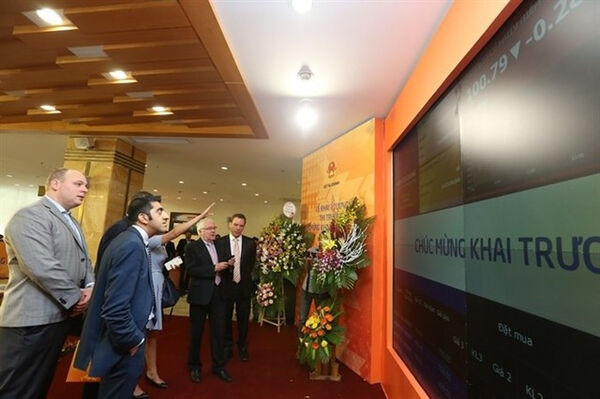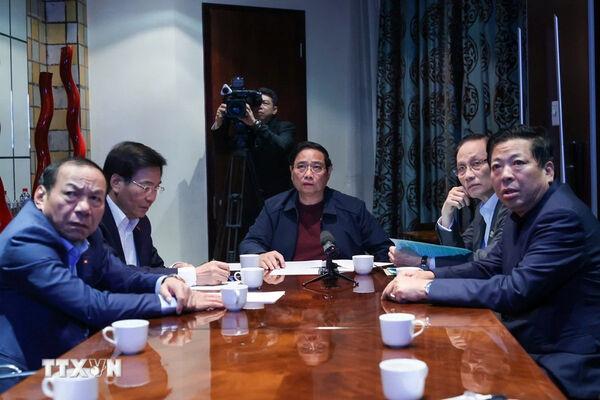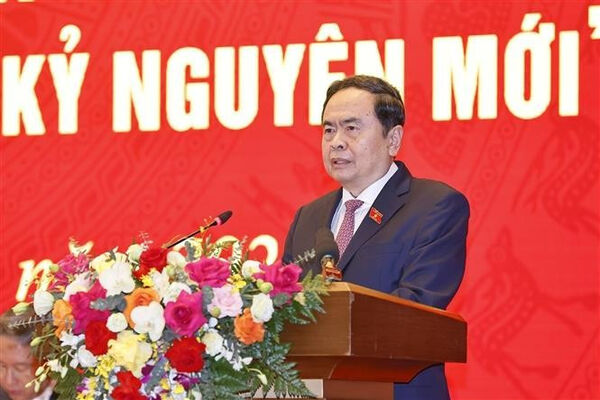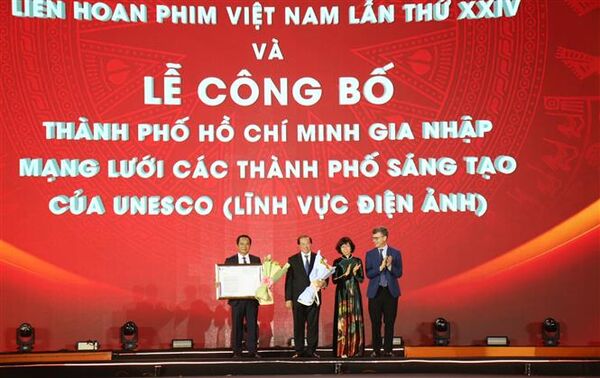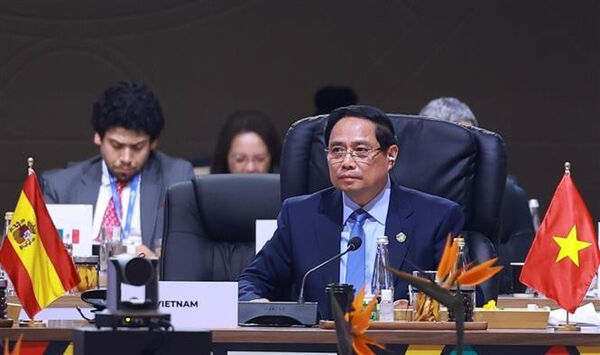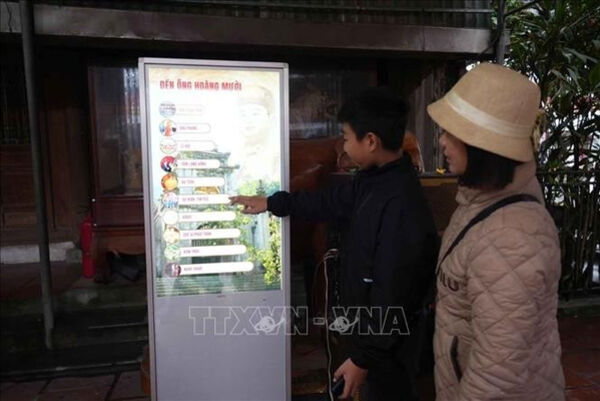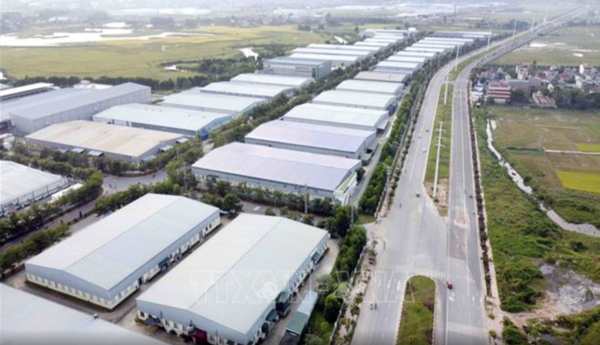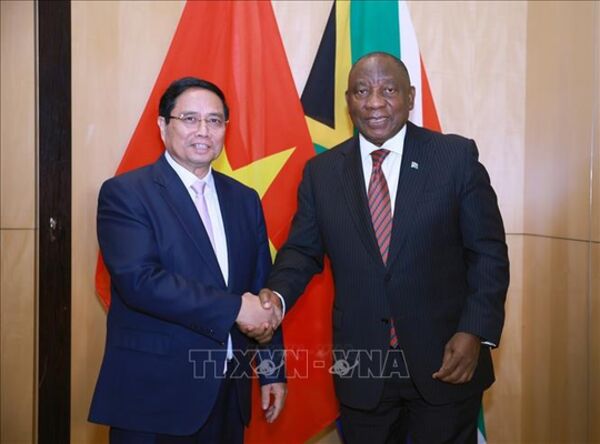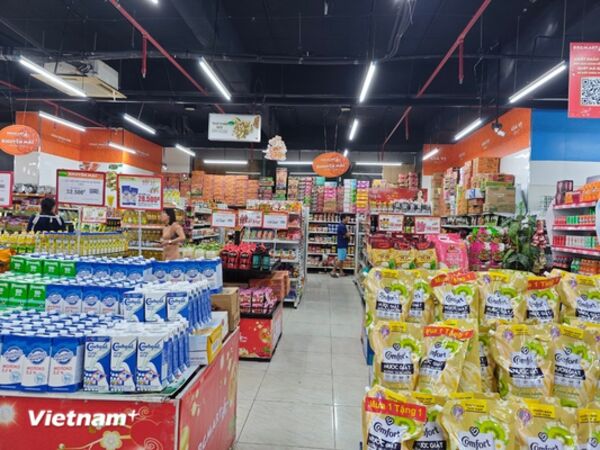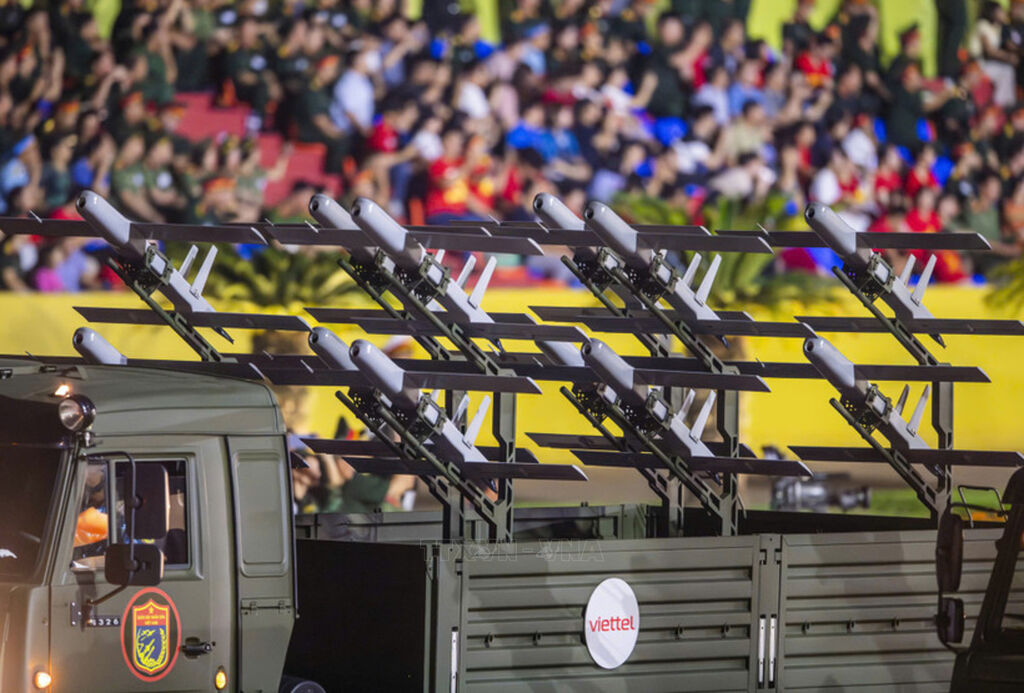 |
| Three modern UAV models developed by Viettel (Photo: vietnamnet.vn) |
Hanoi (VNA) – Vietnam is well placed to seize opportunities from the burgeoning growth of the unmanned aerial vehicle (UAV) sector, with the domestic market projected to reach 2–3 billion USD by 2030, targeting 10 billion USD in revenue and 1 million jobs by 2035, according to experts.
According to Markets & Markets and PwC, the global aerospace industry, especially the UAV sector, is booming with a compound annual growth rate of over 15%. The global UAV market is expected to hit 128 billion USD in 2030 and rise to 700 billion USD by 2035.
The UAV usage is expanding across Vietnam. In agriculture, the Mekong Delta already operates over 3,000 drones across 1.5 million hectares. The agricultural UAV and robotics market is predicted to reach 363.7 million USD by 2030, up 4.76% annually. A single drone can spray or monitor 60–70 hectares per day, far exceeding the manual labour capacity of 1 hectare. In the electricity sector, one hour of UAV inspection can replace three days of manual work.
As Vietnam’s e-commerce market is forecast to reach 63 billion USD by 2030, UAVs are emerging as highly effective last-mile delivery tools. Pilot programmes in Thai Nguyen, Tuyen Quang, and Lang Son provinces have proven their ability to reduce delivery times and overcome difficult terrain.
Viettel has long invested in UAV R&D and deployment. During severe flooding in October–November 2025, the group used drones equipped with mobile 4G/5G transmitters operating at a height of 50–100 metres, providing a 6-kilometre coverage radius and up to 24 hours of service via hybrid cable power, to support disaster response efforts. Viettel has also designed and manufactured multiple UAV models comparable to international products.
Lieut. Gen. Tao Duc Thang, Chairman and General Director of Viettel, said the group is developing dual-use UAVs to build a low-altitude economic ecosystem serving both economic and defence needs.
CT Group is also expanding its UAV footprint. In August 2025, it signed a contract to export 5,000 heavy-load UAVs (60–300 kg) to the Republic of Korea. The company operates five UAV factories and is preparing to build a space centre in Ho Chi Minh City for 10,000 engineers. A new facility in Tay Ninh province is also in the pipeline.
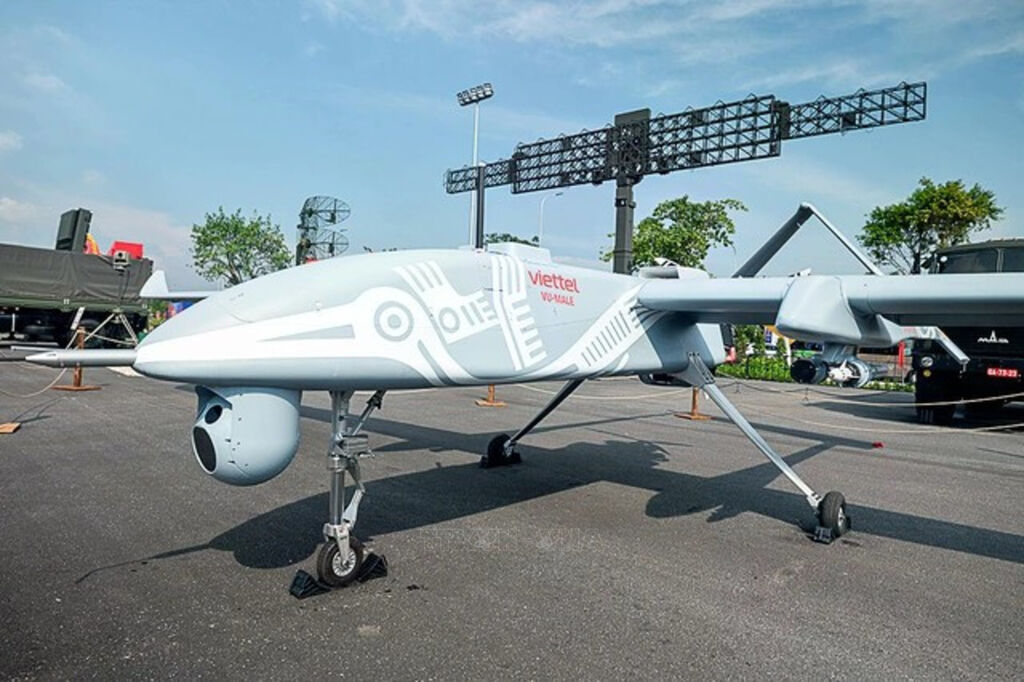 |
| Multi-purpose UAV can reach a maximum flight distance of 10km. (Photo: thanhnien.vn) |
The firm’s Chairman Tran Kim Chung said CT Group expects to complete the 5,000-unit order in 2026 and is negotiating ten additional international contracts. The group has mastered six core technologies—electronic circuit design and manufacturing, composite airframe moulding, flight control systems, telecommunications, stabilised gimbals, and battery solutions—achieving 85–90% self-sufficiency across 16 UAV product lines. It also designs chips, a capability rare among UAV manufacturers, he added.
Clearing bottlenecks for Vietnamese UAVs to advance globally
Despite its potential, the UAV industry still lacks a complete legal framework.
Tran Anh Tuan, Standing Vice Chairman and CEO of the Vietnam Aerospace and UAV Technology Network, stressed that UAVs serve not only defence but also agriculture, logistics, energy management, security, and rescue operations. Domestic demand is rising rapidly.
He recommended that the Government increase R&D investment, provide financial and credit support for start-ups, place orders for “Make in Vietnam” UAVs, complete regulations, and establish UAV sandbox zones for testing and standards for design, production, maintenance, and flight licensing.
FPT Group’s Chief Technology Officer Vu Anh Tu highlighted the need for multi-stakeholder cooperation. The State should lead institutional and infrastructure development, enterprises invest in technology, institutes and universities supply knowledge and human resources, and users serve as the meter of success.
Chung proposed that the Ministry of Science and Technology coordinate with the Ministry of National Defence and the Ministry of Public Security to form an inter-agency task force to resolve legal bottlenecks. CT Group also suggested SIM-based UAV identification for airspace management and registration fees. The company expects greater Government support for UAV production infrastructure and access to science-and-technology funding to help bring Vietnamese UAVs to international markets./.
